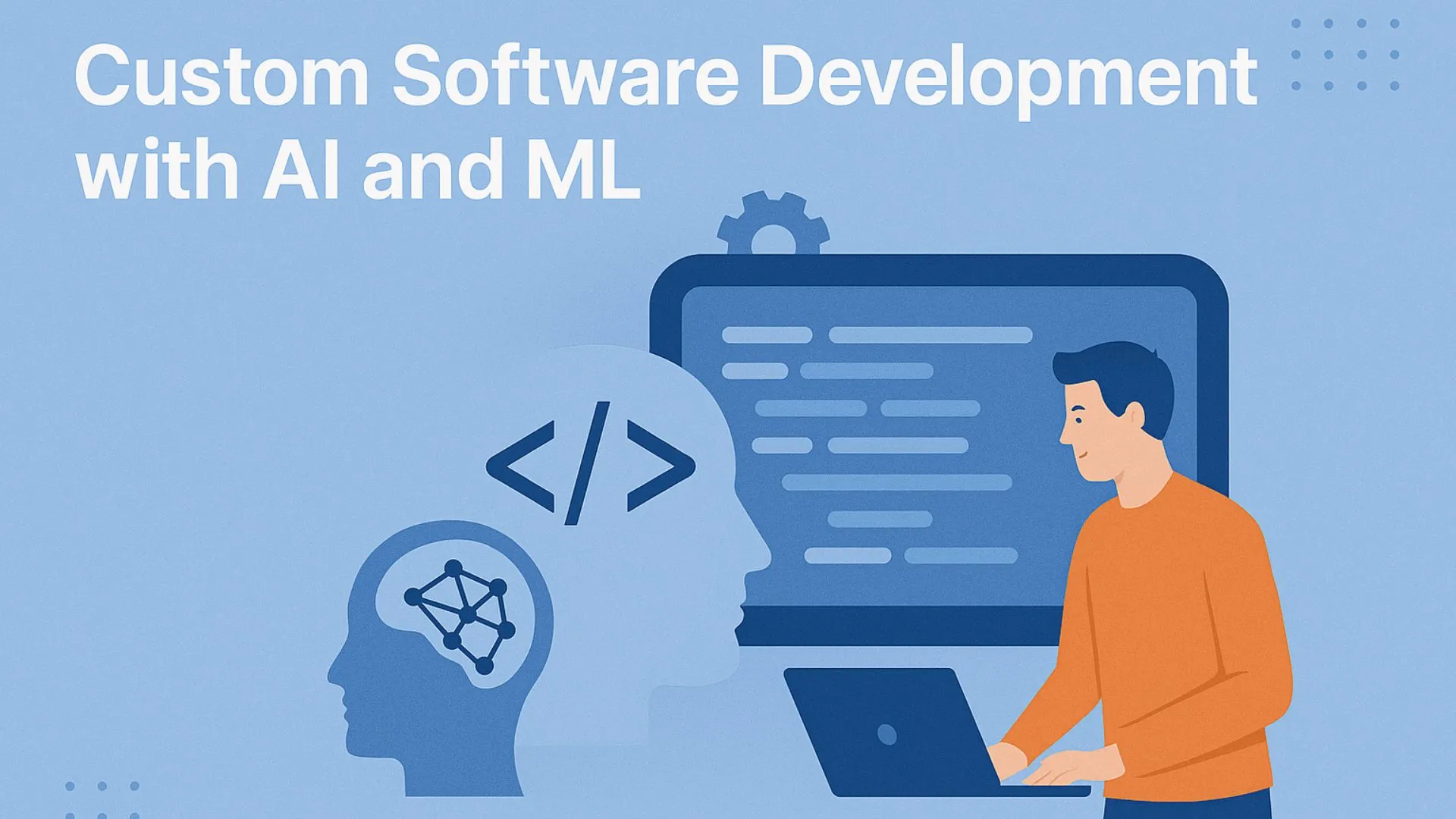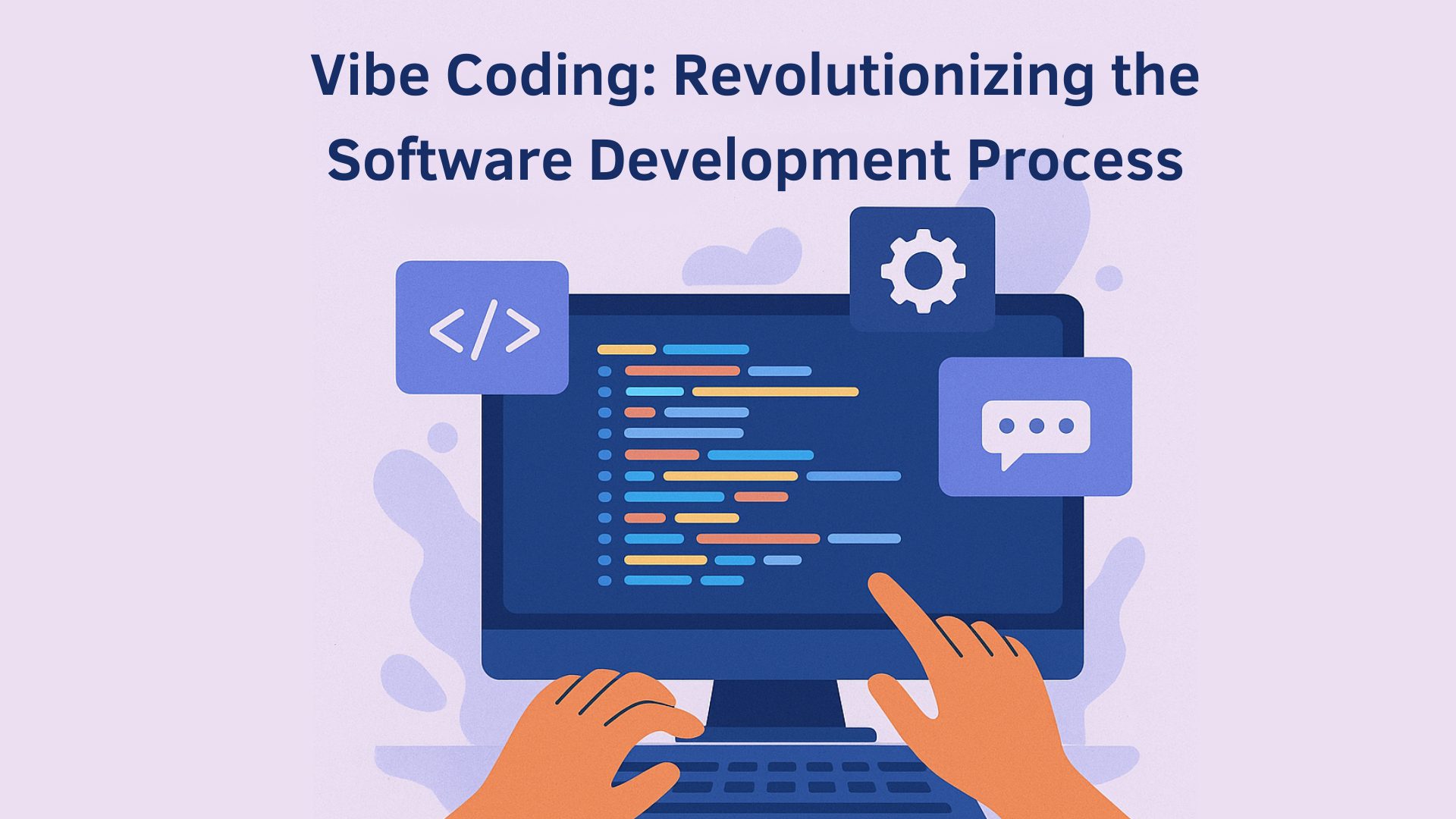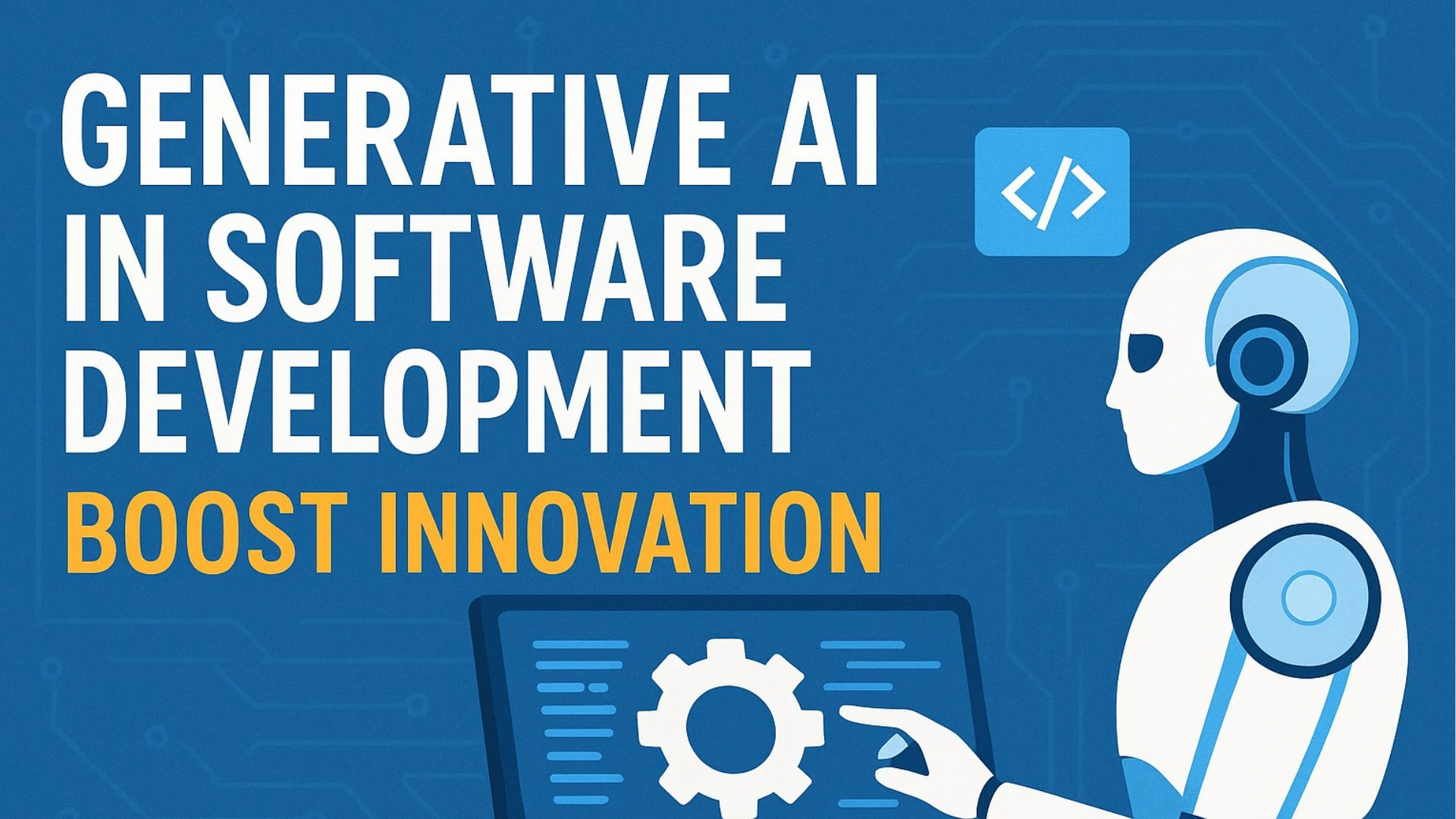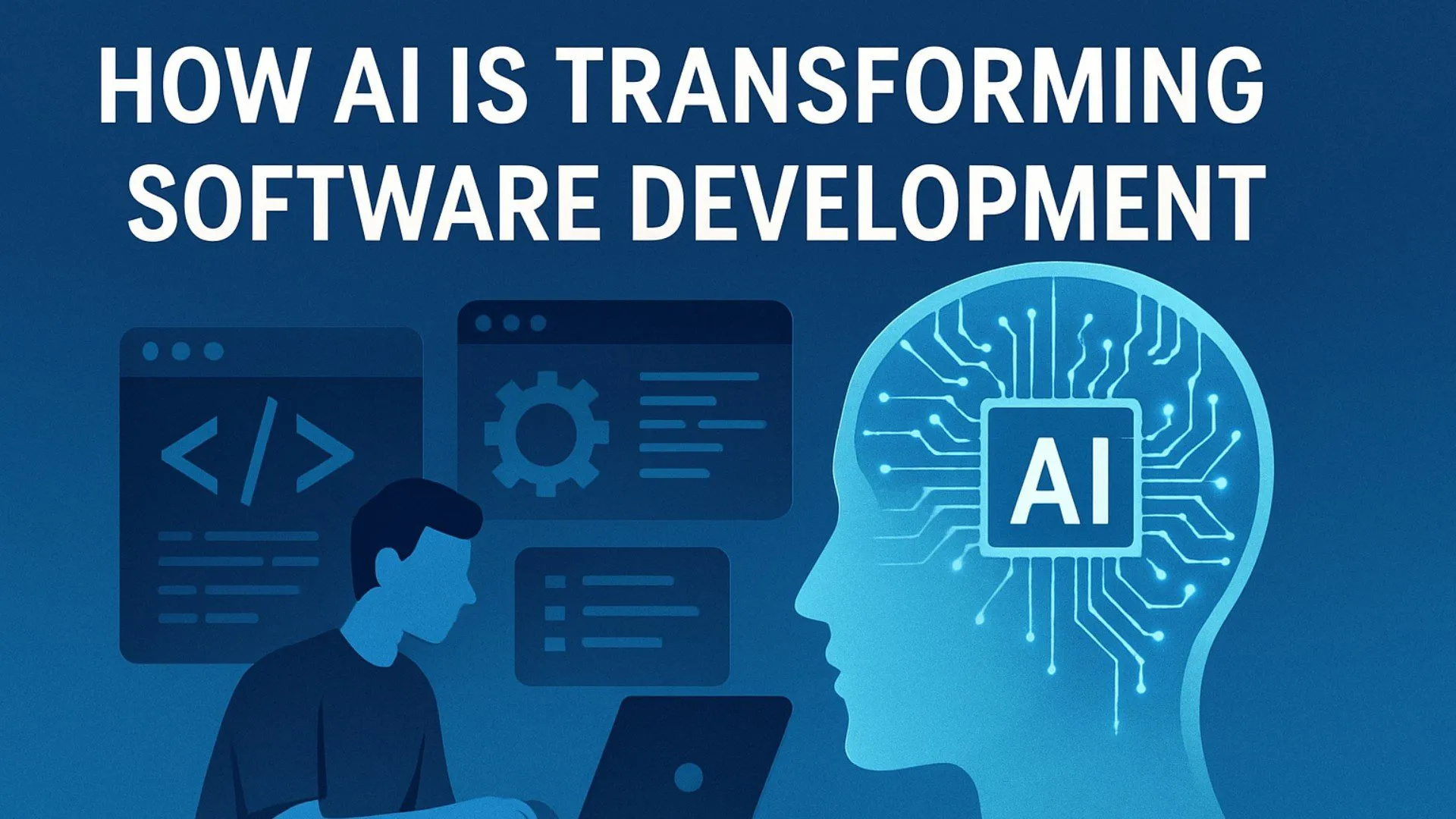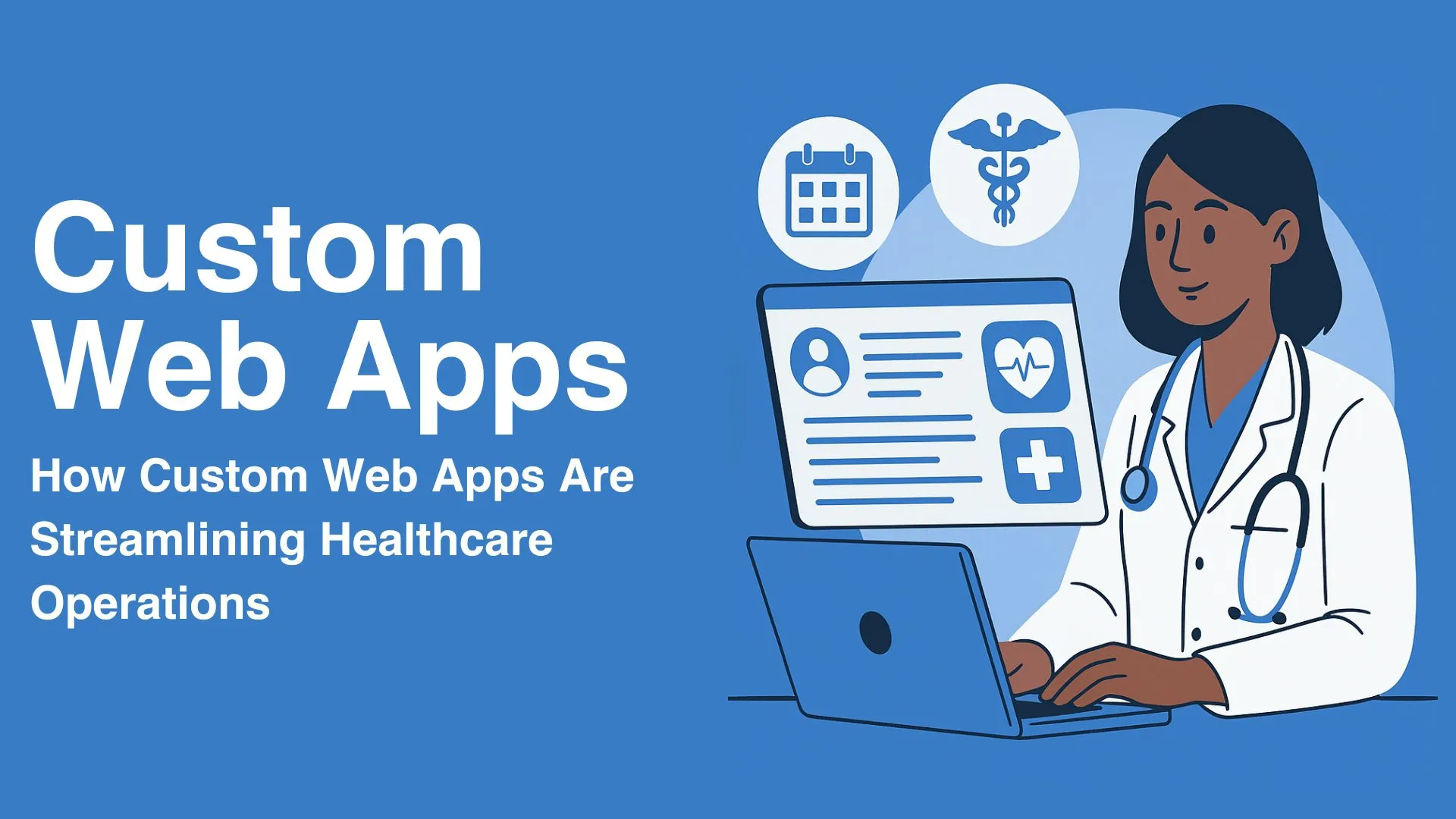Artificial Intelligence (AI) and Machine Learning (ML) are reshaping custom software development. These technologies enable the creation of smarter, more adaptive software solutions.
AI-driven software can automate tasks, enhance decision-making, and improve user experiences. This change is essential for companies looking to gain a competitive advantage.
Custom AI development allows companies to tailor solutions to their specific needs. This personalization is vital in today’s fast-paced digital landscape.
Machine learning tools are essential for building predictive models and data-driven applications. They help in identifying patterns and insights from large datasets.
Custom software that incorporates AI and ML is more than just a fad. It’s a calculated step toward efficiency and creativity.
AI and ML’s Ascent in Custom Software
AI and ML are transforming the landscape of custom software. Their ability to process vast amounts of data is unparalleled. This capability fuels intelligent software that learns and adapts over time.
Businesses increasingly rely on AI-driven software to streamline operations. These technologies free up human resources by automating repetitive operations. This change leads to improved efficiency and creativity.
AI and ML in custom software are becoming more and more in demand. Companies seek to harness these technologies to maintain a competitive edge. As AI applications broaden, their role in custom development becomes more critical than ever.
Key Benefits of AI-Driven Custom Software
AI-driven custom software offers numerous advantages. It enhances decision-making through data-driven insights. Businesses are able to keep ahead of the competition because to this skill.
Customization is a critical benefit. Tailored AI solutions meet specific business needs. Operations become more effective and efficient as a result.
The following are key benefits of AI software solutions:
- Automates complex processes
- Improves user experiences
- Provides cost savings
- Enhances cybersecurity
Moreover, AI-driven solutions adapt to changes dynamically. They can evolve alongside a growing business environment. This flexibility ensures long-term effectiveness.
In summary, adopting AI in custom software brings significant strategic advantages. Businesses can leverage it for improved productivity and innovation. Hence, AI solutions are an integral part of modern custom software development.
Intelligent Software Design: Core Concepts
Intelligent software design revolves around creating adaptable systems. Over time, these algorithms get better by learning from data. The focus is on usability and flexibility.
Core concepts of intelligent software design include:
- User-centric interfaces
- Data-driven adaptability
- Continuous learning capabilities
These concepts ensure the software remains relevant. As technology evolves, intelligent systems quickly incorporate new features. This keeps businesses competitive in fast-paced markets.
Moreover, intelligent design prioritizes user experiences. Software must be intuitive and responsive. Such design principles lead to higher user satisfaction and engagement. Overall, intelligent software design is crucial for building successful AI-driven solutions.
Machine Learning Tools and Frameworks
Over time, these algorithms get better by learning from data. They provide the infrastructure to build predictive models and analyze data.
Several popular frameworks empower developers to create robust AI systems. These frameworks simplify complex machine learning tasks. They also enhance accuracy and speed.
Prominent machine learning tools and frameworks include:
- TensorFlow
- PyTorch
- Scikit-learn
- Keras
Choosing the right tools can greatly impact the success of AI projects. Each framework offers unique strengths and capabilities. It’s important to evaluate project needs carefully and select the most suitable options to achieve desired outcomes.
AI Application Development: From Idea to Implementation
AI application development begins with a strong idea that solves specific problems. Clear objectives and well-defined goals are vital. This ensures the development process stays focused and productive.
The project’s requirements and scope are then outlined in comprehensive planning. Identifying necessary resources, including skilled personnel and technological tools, is crucial. Collaboration between data scientists, developers, and business stakeholders creates a cohesive project strategy.
Coding, testing, and improving the AI models are all part of the development phase. Feedback loops and iterative improvements ensure the software functions as intended.
Key steps in AI application development include:
- Ideation and goal setting
- Resource identification
- Collaborative planning
- Model coding and testing
Finally, successful implementation requires thorough testing and integration into existing systems. Maintaining performance and adjusting to shifting demands are made easier with ongoing evaluation. Frequent updates guarantee that the program will always be useful and relevant.
Top AI Technology Trends in Custom Software
AI technology trends are reshaping custom software development. At the forefront are computer vision and natural language processing. These technologies automate difficult visual tasks and improve user interaction.
Explainable AI is gaining traction. It focuses on transparency, helping users understand AI decisions. This trend addresses ethical concerns and builds trust in AI systems.
Autonomous systems are also thriving. They improve decision-making and increase operational efficiency. Industries like transportation and logistics see immense potential in these systems.
Key AI technology trends include:
- Natural language processing
- Computer vision advancements
- Focus on explainable AI
- Growth of autonomous systems
by Marija Zaric (https://unsplash.com/@simplicity)
Staying informed about these trends can position businesses ahead in innovation. This awareness helps leverage AI’s full potential in custom software solutions. Keeping up with trends is still essential for success as AI develops.
Real-World Use Cases and Industry Examples
AI and ML are transforming various industries. They help businesses drive efficiency and innovation. By integrating AI into their systems, companies achieve significant gains.
The retail industry uses AI for personalized shopping experiences. AI algorithms analyze customer data to predict buying patterns and preferences. This personalization enhances customer satisfaction and boosts sales.
In healthcare, AI aids in diagnosis and treatment. Medical photos and patient data are analyzed by machine learning technologies. They support doctors by providing faster and more accurate insights.
Examples of AI use cases include:
- Personalized retail recommendations
- Predictive healthcare diagnostics
- Automated financial advising
- Smart manufacturing systems
by Martin King (https://unsplash.com/@kingy)
These examples highlight AI’s vast potential across sectors. Adopting AI solutions leads to smarter, more agile business operations. The impact of AI and ML is transformative and enduring.
Challenges and Considerations in Custom AI Development
Custom AI development presents distinct challenges. Navigating these requires careful planning and expertise. Businesses must address these challenges for successful implementation.
One major concern is data privacy. AI systems rely on large datasets, raising privacy issues. Safeguarding user information is critical.
Technical challenges are equally important. Developing precise models demands skilled personnel and resources. Ensuring the accuracy of AI predictions is crucial.
Considerations when developing AI include:
- Data security measures
- Technical expertise requirements
- Ethical implications of AI use
- Cost of development and maintenance
Overcoming these hurdles ensures effective AI integration. Proper planning can mitigate risks and enhance outcomes.
Best Practices for Successful AI Software Solutions
Implementing AI software solutions effectively demands a strategic approach. It’s essential to embrace best practices that optimize development and deployment. Thorough testing and iterative enhancements are crucial for success.
Collaboration among diverse stakeholders is key. Engage data scientists, developers, and decision-makers. This ensures alignment and clarity in project goals.
Focus on the end-user experience. Design interfaces that are intuitive and user-friendly. This promotes broader adoption and satisfaction.
Some best practices include:
- Setting clear objectives and requirements
- Prioritizing data quality and security
- Encouraging cross-functional collaboration
- Continuously monitoring and refining models
Employing these strategies leads to robust AI solutions. These efforts can drive innovation and long-term value.
Conclusion: The Future of AI ML in Custom Software
AI and ML are redefining custom software development. Their potential to create adaptive solutions is enormous. Businesses that embrace this technology gain a clear advantage.
As AI and ML tools evolve, they will unlock new possibilities. Investing in these technologies promises enhanced innovation and efficiency. The future of custom software is intelligent and transformative.

